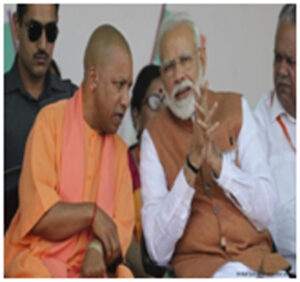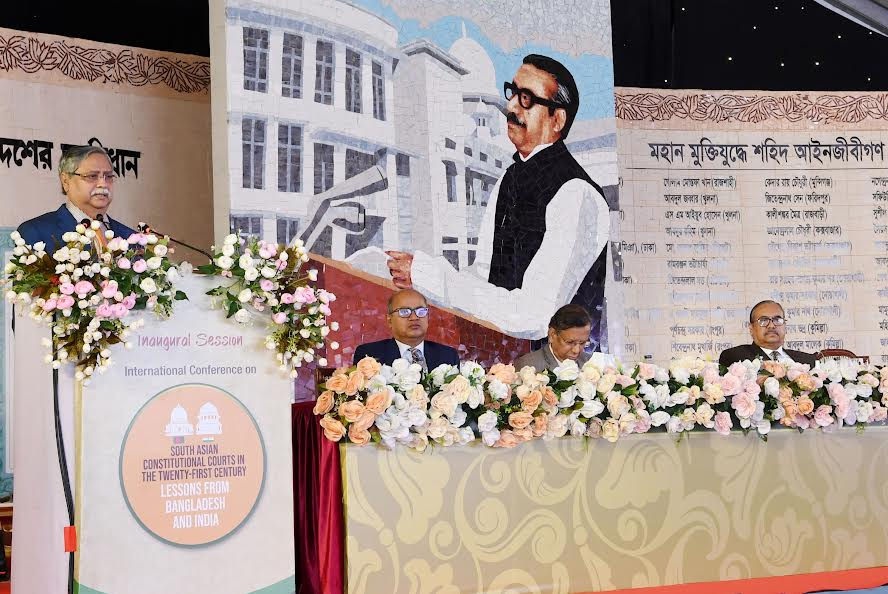 Moon Desk: FOR the last four years, India’s farming community remains under great turmoil because of Indian premier Narendra Modi’s obscure, fascist, fundamentalist and an apartheid green lawfare. Needless to say, intermittently since September 2020, the Indian Government has been witnessing a continuous wave of populist movements against the policies –callously and ruthlessly brought forward by the ruling right-wing central government (BJP) –indoctrinated by the Hindutva ideologues in New Delhi. This farmers ‘movement against the Modi Government is deeply rooted in the recently passed farm laws, namely the ‘Farmers’ Produce Trade and Commerce (Promotion and Facilitation) Act, 2020; Farmers Agreement on Price Assurance and Farms Services Act 2020; and Essential Commodities Amendment Act 2020.
Moon Desk: FOR the last four years, India’s farming community remains under great turmoil because of Indian premier Narendra Modi’s obscure, fascist, fundamentalist and an apartheid green lawfare. Needless to say, intermittently since September 2020, the Indian Government has been witnessing a continuous wave of populist movements against the policies –callously and ruthlessly brought forward by the ruling right-wing central government (BJP) –indoctrinated by the Hindutva ideologues in New Delhi. This farmers ‘movement against the Modi Government is deeply rooted in the recently passed farm laws, namely the ‘Farmers’ Produce Trade and Commerce (Promotion and Facilitation) Act, 2020; Farmers Agreement on Price Assurance and Farms Services Act 2020; and Essential Commodities Amendment Act 2020.
Tens of thousands of farmers began a protest march toward New Delhi earlier this week to demand guaranteed prices for their produce, but were stopped by the police about 200 kilometres away from the capital. The farmers are camping on the border between Punjab and Haryana after being blocked by concrete and metal barricades. Police have unjustifiably detained hundreds of protesters who through country-wide remonstrance have appealed to the Government to review the three fascist conditions that New Delhi imposed on farmers in September 2020. Whereas, the preamble to the first law says it aims to “protect and empower” farmers to engage with wholesalers, exporters and retailers in a “fair and transparent manner.”
The core of the agrarian movement: most of the protesters are farmers from northern Punjab and Haryana states, the two biggest agricultural producers. They are demanding the repeal of laws passed by Parliament in September that they say will favour large corporate farms, devastate the earnings of many farmers and leave those who hold small plots behind as big corporations win out. Modi has billed the laws as necessary to modernize Indian farming. Because of the demographics of Punjab and Haryana, many of the protesters in New Delhi happen to be from India’s minority Sikh community though their grievances are rooted in economic issues, not religious ones. These protests are also happening in other parts of the country among Indians of other backgrounds.
Modi’s New Delhi must learn that democracy works only when there are more rules and mechanisms to control the rich and powerful than the poor. By all contours, ‘this movement reflects on the post Marxist-reductionist values of a class struggle, fostering a determination for a social change. Of course, many farmers don’t trust the government. The agrarian law demonstrators see the new laws as the first step toward dismantling all the support given to farmers during the Green Revolution in the 1960s. Nonetheless, the peasants’ community that played a dominant role in Indian politics in the 1940s, has spurred the biggest challenge to Modi’s rule. They are a powerful constituency that Premier Modi cannot afford to alienate. All the more, given the magnitude of the Sikh community, the movement will profoundly cast an impact on India’s upcoming elections.







